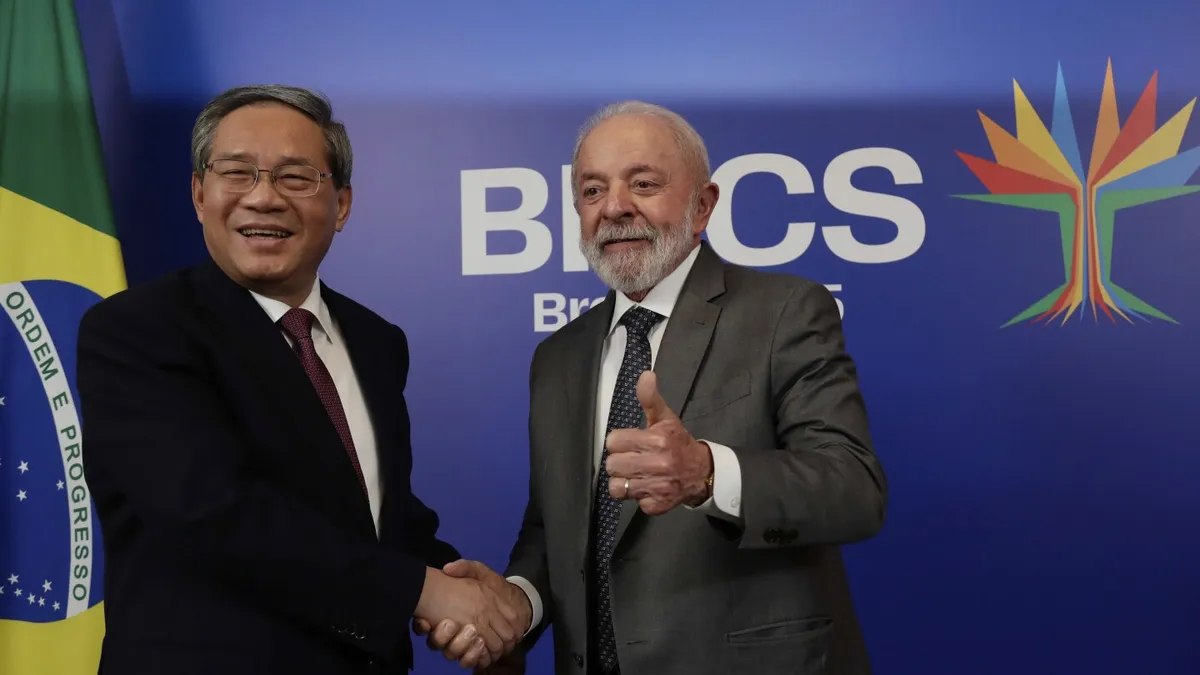
Rio de Janeiro is set to host a significant summit of the BRICS bloc this Sunday and Monday, bringing together developing economies to address pressing global issues. Key topics on the agenda include Israel's recent actions against Iran, the ongoing humanitarian crisis in Gaza, and the trade tariffs imposed by former U.S. President Donald Trump. Analysts and diplomats are concerned that the recent enlargement of the BRICS bloc, which doubled in size last year, may hinder its effectiveness as a cohesive force in global affairs.
Experts believe that the lack of unity within the expanded BRICS group could impact its ability to establish itself as a significant player on the world stage. The summit's moderate agenda appears to be a strategic move by member countries to avoid drawing attention from the Trump administration. Brazilian President Luiz Inácio Lula da Silva has prioritized discussions on artificial intelligence and climate change, although key leaders such as China's President Xi Jinping and Russian President Vladimir Putin will not be present. Xi will miss the summit for the first time since taking office in 2012, while Putin is expected to attend virtually due to an international arrest warrant stemming from Russia's invasion of Ukraine.
In contrast to last year's summit in Kazan, where Russia sought to create alternatives to U.S.-dominated payment systems, the upcoming meetings in Rio de Janeiro are expected to be more restrained. A source familiar with the summit's preparations indicated that some member countries are advocating for stronger language concerning the situations in Gaza and the recent Israeli actions against Iran. However, Brazil aims to keep the discussions technical and non-controversial. Oliver Stuenkel, a professor at the Getulio Vargas Foundation, noted that the absence of Xi and Putin may facilitate a more vague final declaration regarding these sensitive issues.
As the host nation, Brazil has outlined six strategic priorities for the summit, focusing on global cooperation in healthcare, trade, investment and finance, climate change, governance for artificial intelligence, and peace-making and security. This shift towards less contentious subjects comes in response to concerns about Trump's tariffs. Ana Garcia, a professor at the Rio de Janeiro Federal Rural University, emphasized Brazil's desire to minimize risks to its economy and avoid provoking the Trump administration. Brazil has successfully dodged the tariffs thus far, but ongoing threats from Trump to impose 100% tariffs on BRICS nations loom large.
The summit will also be marked by the absence of Iranian President Masoud Pezeshkian and Egypt’s President Abdel-Fattah el-Sissi, both of whom joined BRICS in 2024, alongside Ethiopia, Indonesia, and the United Arab Emirates. Although Saudi Arabia is participating in discussions, it has yet to confirm its attendance formally. The rapid expansion of BRICS has prompted Brazil to prioritize institutional development to integrate new members and enhance internal cohesion.
Despite the notable absences, the BRICS summit holds significant importance for its attendees, particularly given the instability caused by Trump's trade policies. Bruce Scheidl, a researcher at the University of Sao Paulo's BRICS study group, highlighted that the summit offers emerging countries a vital opportunity to explore alternatives and diversify their economic partnerships. For President Lula, this summit serves as a much-needed respite from domestic challenges, including declining popularity and conflicts with Congress.